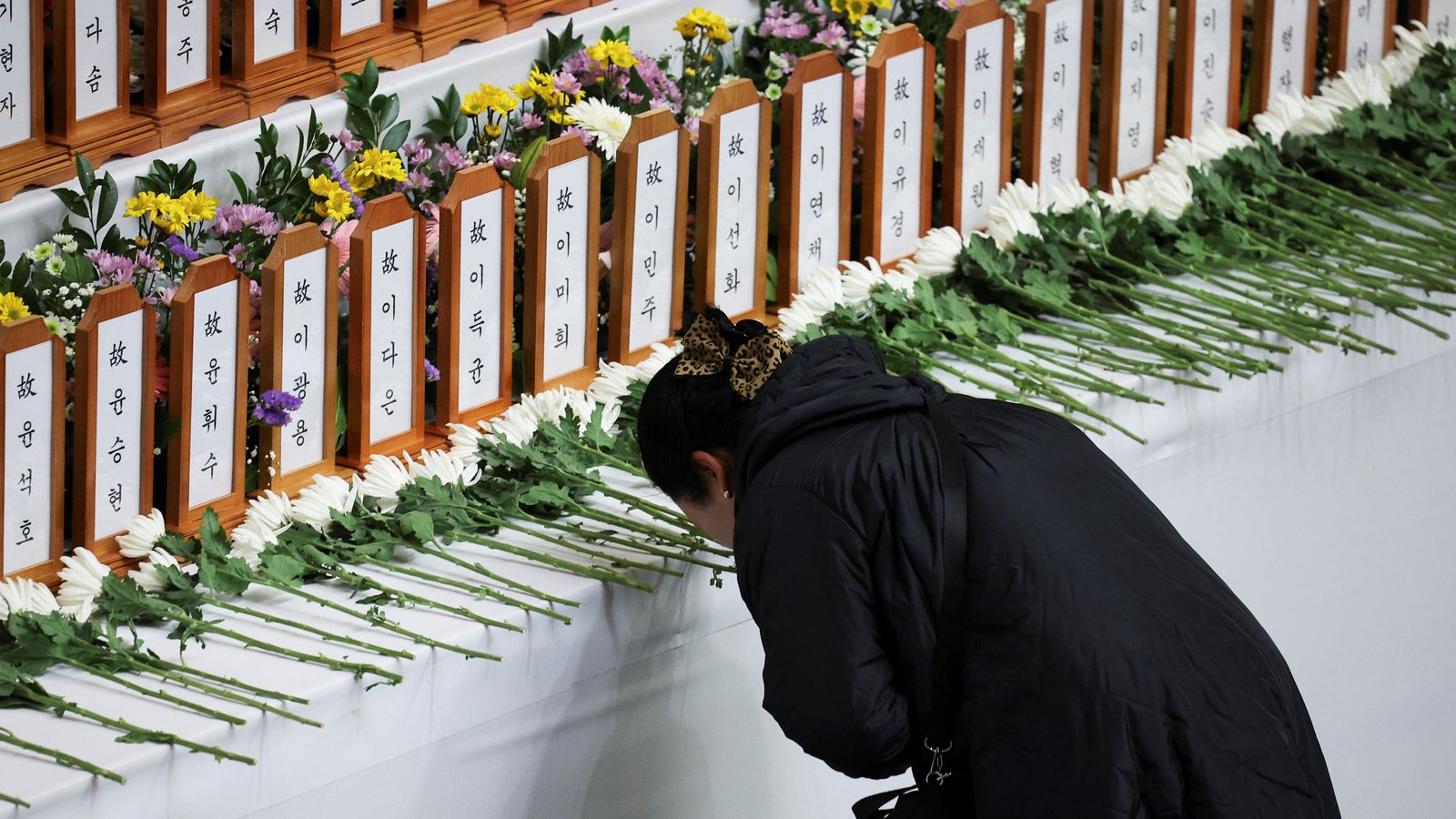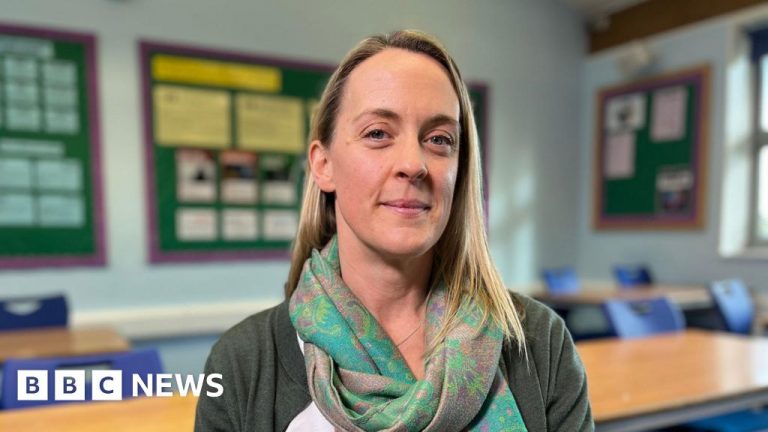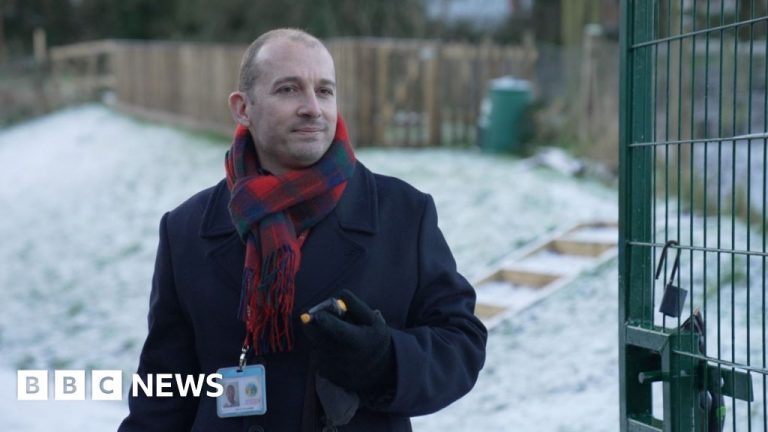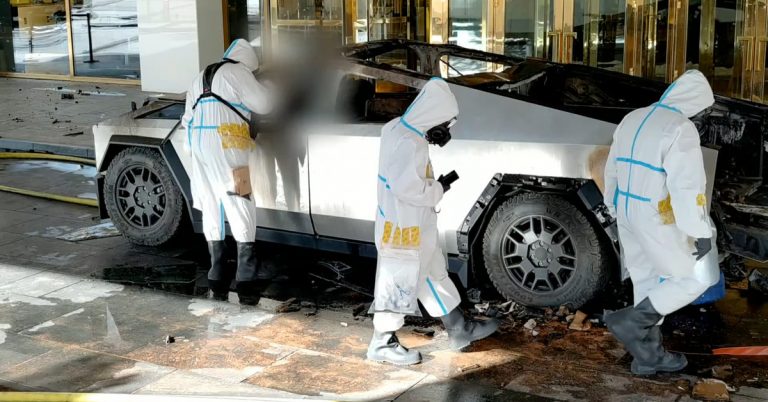At the crash site at Muan Airport, you get a really strong sense of just how sudden and catastrophic it all was.
There is an eerie quiet as the army sifts through the wreckage, picking up tiny bits of debris and placing them in small plastic bags.
Tens of metres from the plane you can see countless passenger seats ripped apart and broken bits of aircraft equipment everywhere.
Only the tail of the plane is visible – most of it is destroyed. Engulfed by flames, it’s clear passengers had next to no chance of surviving this horrific disaster.
Live updates: South Korea plane crash
In the airport, a morgue has been established, and families are gathered – all in grief, but some still waiting for their loved ones to be officially identified.
They are sat in mournful silence – the arrivals board now carrying the names of those on board.
Sheltered tents have been erected to give families privacy. There’s a stillness and shock that hangs in the air.
Read more:
Pilot reported bird strike before crash
Tough questions for airline bosses
Many of those on board were returning from a Christmas holiday to Thailand. Now the loved ones they’ve left behind are gathering at a memorial altar – trying to process the aftermath of South Korea’s worst-ever aviation disaster.
There is a cruel choreography to the aftermath of the national tragedy playing out on an acute and horrifying level for the families of the dead.
Relatives look exhausted. Some have slept on the terminal floor, desperately waiting for official confirmation.
Then, suddenly a man comes to the microphone and starts to read out a list of eight individuals and asks their families to go to gate one.
Relatives quickly huddle together and rush outside to a bus that’s waiting to take them to the mortuary.
It is a gruesome process ahead for them. Many of the bodies are in a very poor condition. They can only be identified through DNA testing and fingerprints.
As they wait to board the bus, a group of women starts to weep. It is an outpouring of grief in a society that prioritises privacy. Most are simply too upset to talk.
But at a briefing, frustration is boiling over. Some relatives are shouting at officials, angry they’ve still not been able to see their loved ones’ bodies.
The official tells them they are sorting through more than 600 body parts and are trying hard to avoid any mistakes. It is an uncomfortable truth that’s hard for many to hear.
































+ There are no comments
Add yours